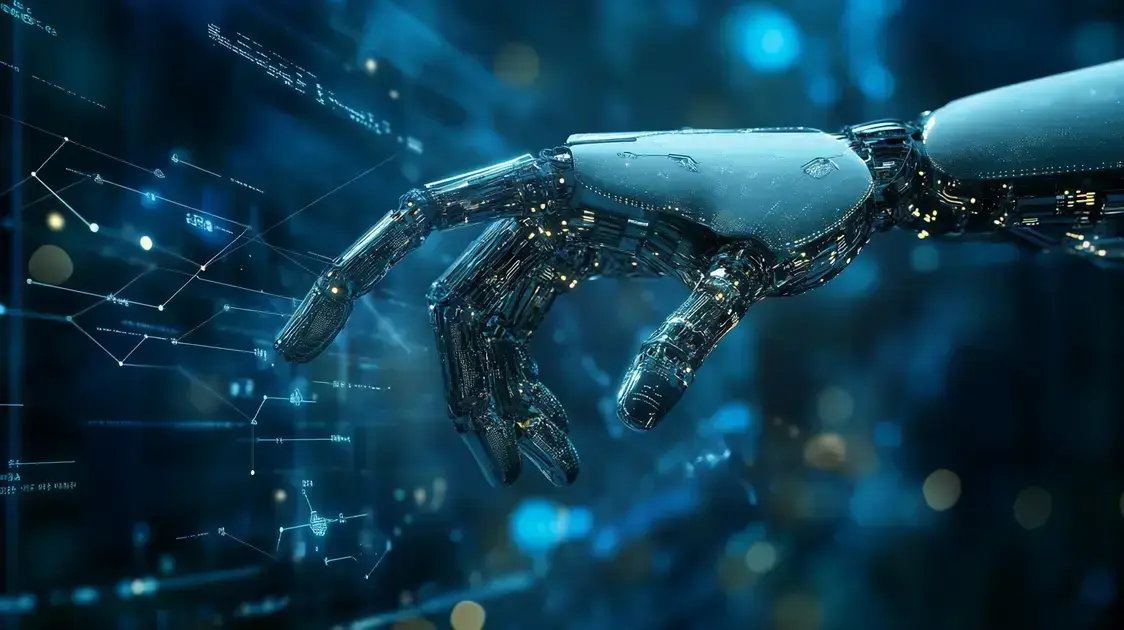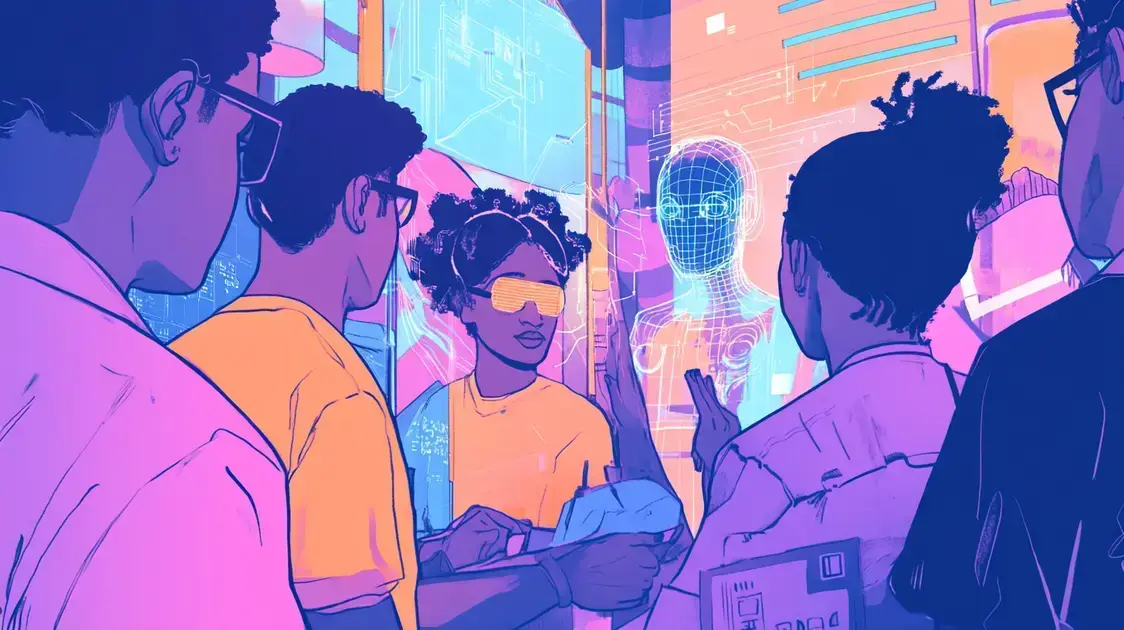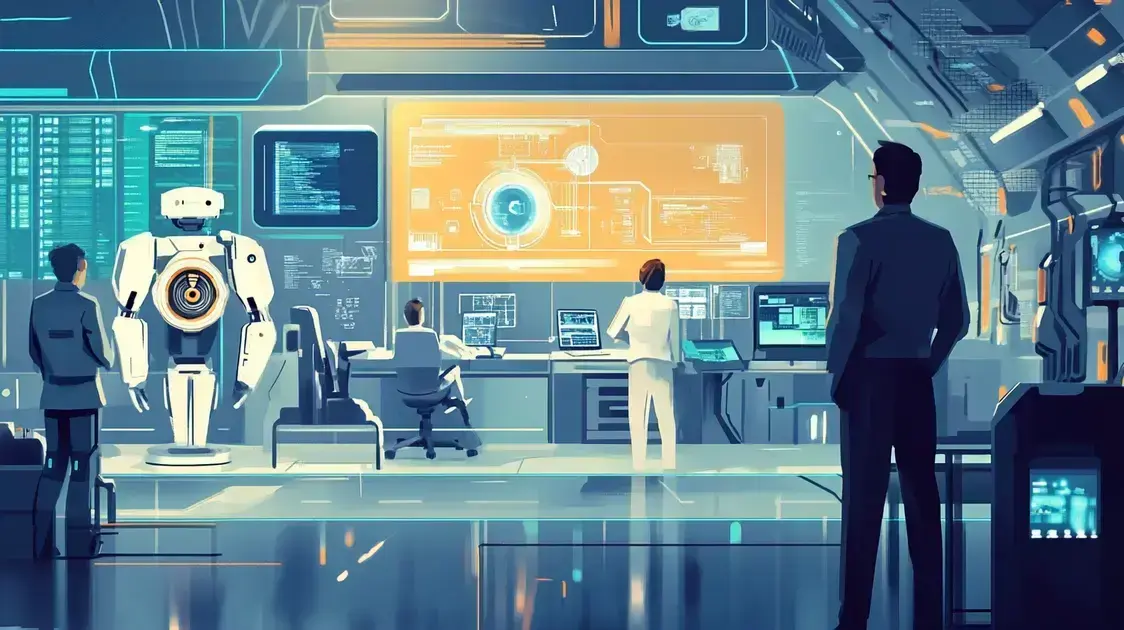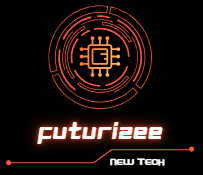AI is changing the job market significantly, creating transformative shifts that are influencing the very nature of work. Automation, machine learning, and advanced algorithms are no longer concepts of the future—they are active forces shaping industries today.
As technology evolves, both individuals and organizations must adapt. Skills that were once in high demand are being replaced, while entirely new roles are emerging. Understanding these dynamics is crucial for staying relevant and competitive.
To navigate this evolving landscape, it’s essential to recognize the opportunities and challenges ahead. Keep reading to discover how AI is reshaping careers—and how you can stay one step ahead.
The Impact of AI on Employment Rates
AI is changing the job market by transforming how businesses operate e mudando as exigências profissionais em diversos setores. Com a automação de tarefas repetitivas, áreas como atendimento ao cliente e manufatura estão sendo diretamente impactadas.
Ainda assim, AI is changing the job market de forma positiva. Estão surgindo novas oportunidades em áreas como ciência de dados, ética em IA e engenharia de machine learning. Esses cargos exigem habilidades técnicas e têm grande potencial de crescimento.
Para acompanhar essas mudanças, os profissionais precisam se adaptar. Aprender novas competências e se atualizar se tornou essencial. AI is changing the job market, e quem estiver preparado terá mais chances de prosperar nesse novo cenário.
Skills of the Future in an AI-Driven Market
AI is changing the job market, and the most in-demand skills are shifting. Knowing how to code in Python, R, or Java—and understanding data and machine learning—is becoming essential.
At the same time, AI is changing the job market by increasing the value of human skills. Critical thinking, creativity, and emotional intelligence are key as machines take over routine tasks.
Finally, AI is changing the job market by requiring more flexible and curious professionals. Blending tech with other fields and embracing lifelong learning will be the real advantage. Keep reading to find out how to stay ahead.
Industries Most Affected by AI Integration

Artificial Intelligence (AI) is transforming many industries by enhancing efficiency and automating processes. Below are some key industries that are most affected by AI integration.
Manufacturing
The manufacturing sector is experiencing significant changes due to AI. Robotics and AI systems are automating repetitive tasks, reducing human error, and increasing production speed. This integration boosts productivity but may also lead to fewer manual labour jobs.
Healthcare
In healthcare, AI is revolutionising patient care. From diagnostic tools that analyse medical images to AI-driven data systems that predict patient outcomes, this technology is improving treatment accuracy and efficiency. However, it may also alter the roles of medical professionals.
Finance
The finance sector is heavily utilising AI for fraud detection, algorithmic trading, and automating customer service through chatbots. These advancements enhance security and improve client interactions but may reduce the need for certain traditional roles.
Retail
AI is reshaping the retail industry by personalising customer shopping experiences. Recommendation systems and inventory management powered by AI help retailers optimise their operations. This shift allows for better customer insights but may impact jobs related to traditional in-store sales.
Transportation
In transportation, AI is driving the development of autonomous vehicles. While this innovation promises to improve safety and efficiency, it poses a threat to jobs in driving sectors, such as trucking and public transportation.
Education
AI is beginning to change education by providing personalised learning experiences. Adaptive learning platforms tailor coursework to individual student needs, which can enhance learning outcomes but may also change the roles of educators.
Telecommunications
The telecommunications industry uses AI for network optimisation and customer support. AI systems can predict service outages and improve user experience through efficient troubleshooting, impacting jobs that previously handled these tasks.
Legal Sector
AI is making waves in the legal field through predictive analytics and document review automation. These tools help lawyers streamline their processes, but they may also reduce the demand for entry-level legal positions.
Overall, AI integration will continue to heavily influence various industries. The balance between enhancing efficiency and preserving employment opportunities will be crucial as the job market adapts to these changes.
How AI is Creating New Job Opportunities
AI is changing the job market by creating entirely new roles. Companies now need AI specialists, data scientists, and ethics experts to build and manage responsible systems. There’s also growing demand for those who can maintain and support AI tools.
At the same time, AI is changing the job market through new collaboration roles. Professionals who help teams work with AI are key. Creative fields are also shifting, with AI assisting writers, designers, and marketers.
Education is evolving too. AI is changing the job market by increasing demand for trainers who teach AI tools and skills. Adapting to these changes opens the door to future-ready careers.
AI Human Collaboration: What to Expect

AI human collaboration is transforming how we work and interact with machines. This collaboration is not about replacing humans but enhancing their capabilities. Here are some key elements to expect in AI human collaboration.
Augmented Decision-Making
AI systems can process large amounts of data faster than humans, which helps in augmented decision-making. By analysing trends and patterns, AI provides valuable insights that support workers in making informed choices.
Enhanced Productivity
AI tools can automate mundane tasks, allowing employees to focus on more critical areas of their work. This leads to enhanced productivity, as individuals can dedicate their time to strategic thinking and creativity.
Personalised Workflows
AI technologies can adapt to individual work styles, creating personalised workflows. By learning from how an employee interacts with the system, AI can suggest tailored solutions, making tasks easier and more efficient.
Collaboration between Humans and AI
As AI becomes more integrated into daily tasks, the synergy between humans and AI will increase. This collaboration creates a dynamic environment where machines assist with routine duties while humans handle complex, nuanced tasks that require empathy and creativity.
Training and Support
Organisations will place a greater emphasis on training and support to help employees learn how to work alongside AI systems. Providing proper resources will empower workers to leverage AI technologies effectively.
Ethical Considerations
As we move towards closer collaboration with AI, ethical considerations will be paramount. Developing guidelines for ethical AI use ensures that human rights and dignity are respected in decision-making processes involving AI.
Ultimately, AI human collaboration is set to redefine the workplace, facilitating a more innovative and efficient work environment. Embracing this collaboration will be essential for future success.
Challenges Facing Workers in an AI Era
As AI technology becomes more integrated into the workplace, workers face several challenges. While there are many benefits, these obstacles can be significant.
Job Displacement
One of the most pressing challenges is job displacement. As AI systems automate tasks, workers in roles that are routine or repetitive may find their jobs at risk. This concern is particularly acute in sectors like manufacturing and customer service.
Skill Gaps
With the rise of AI, there is a growing demand for new skills. Many workers may face skill gaps, lacking the necessary training to work alongside AI technologies. This can lead to anxiety and uncertainty about their future job prospects.
Adapting to Change
Adapting to the fast pace of technological change is another challenge. Workers may struggle to keep up with the continual advancements in AI. This persistent need to learn can be overwhelming for some individuals.
Ethical Concerns
AI raises important ethical concerns that workers must navigate. Issues such as bias in AI algorithms and data privacy can cause stress and uncertainty in the workplace. Employees need clarity on how these systems operate and how they impact their roles.
Job Quality Variations
AI integration can also affect the quality of jobs. While some roles may offer increased efficiency, others may lead to higher workloads or less job satisfaction as machines take over tasks previously done by humans.
Social Isolation
As AI systems become more prevalent, there is a risk of social isolation. Workers who rely heavily on AI tools may find less need for interpersonal interaction, which can affect team dynamics and overall workplace morale.
Overall, as AI reshapes the job landscape, addressing these challenges will be essential for ensuring a positive transition for workers. They must be equipped with the tools and knowledge to thrive in this new environment.
Adapting to Change: Strategies for Success
AI is changing the job market, and adapting to these shifts is essential. Continuous learning is one of the most effective ways to stay competitive. Whether through online courses or workshops, staying updated with new tools and trends keeps workers prepared for the future.
Networking and collaboration are equally important. AI is changing the job market by reshaping how professionals connect and grow. Building strong relationships through events, webinars, or industry groups can open doors and spark new opportunities.
Flexibility is also key. As roles evolve, AI is changing the job market by requiring workers to embrace new responsibilities. Being open to change, learning new skills, and working alongside technology helps individuals remain valuable assets.
Finally, human skills still matter. AI is changing the job market, but soft skills like communication, emotional intelligence, and mentorship continue to stand out. Focusing on these areas helps workers thrive where machines fall short.
The Future Outlook of Jobs in the Age of AI

The future outlook of jobs in the age of AI is both exciting and uncertain. As technology continues to advance, various changes will influence job markets worldwide.
Job Creation in New Fields
AI is likely to create new jobs that revolve around managing and developing technology. Fields such as data science, AI ethics, and machine learning will expand as organisations seek experts who can harness AI’s capabilities.
Focus on Human-Centric Roles
As automation increases, there will be a shifted emphasis on roles that require human ingenuity and emotional intelligence. Jobs in healthcare, education, and customer service will highly rely on human interaction and compassion, which AI cannot replicate.
Remote Work Opportunities
The adoption of AI tools will facilitate remote work opportunities, allowing professionals to collaborate seamlessly from various locations. This evolution can help organisations attract talent from a larger pool, enhancing diversity and innovation.
Upskilling and Reskilling
With an evolving job landscape, the need for upskilling and reskilling will become paramount. Workers must engage in lifelong learning to stay relevant, adapting to the demands of new technologies and methodologies.
Collaborative Work Environments
Future workplaces will likely feature collaborative environments where AI and humans work side by side. This collaboration can enhance productivity, with AI managing repetitive tasks and freeing up time for employees to focus on creative and strategic initiatives.
Job Displacement and Transition
Although AI will create new opportunities, there will be challenges due to job displacement in certain sectors. Workers may need support during transitions, including training and career counselling, to navigate changes in employment.
Overall, the outlook for jobs in the age of AI shows promise, with the potential for innovation and growth. However, it will require active engagement from both workers and employers to ensure a smooth transition.
Embracing the Future of Work with AI
The integration of Artificial Intelligence (AI) into the job market brings both opportunities and challenges that we must navigate carefully. As AI reshapes industries and job roles, it is crucial for individuals and organisations to adapt through continuous learning and reskilling.
By embracing these changes, workers can position themselves successfully in an evolving landscape, while businesses can leverage AI to enhance productivity and foster innovation.
Ultimately, collaboration between humans and AI will redefine how we work, creating environments where both can thrive side by side. Emphasising soft skills, ethical use of AI, and a commitment to lifelong learning will be key factors in ensuring a bright and successful future in the age of AI.
As we look forward, proactive engagement with these technologies will determine how we shape our careers and workplaces in the years to come.
Check out our article on AI in the Workforce to explore how artificial intelligence is transforming industries and reshaping the future of work.
